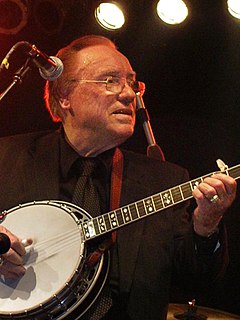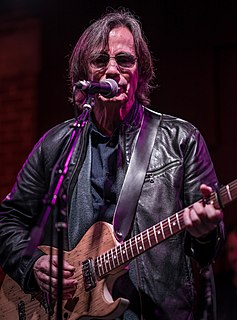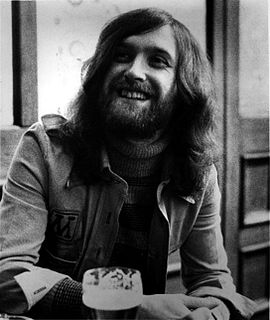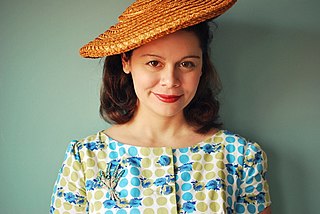A Quote by Bela Fleck
I think it is very ironic that most people think that the banjo is a southern white instrument. It came from Africa and even for the first years that white people played banjo they would put on blackface.
Related Quotes
It's horrible for someone to listen to someone learning any instrument - when I was first learning the banjo, I used to have to go out and sit in the car, and even in the summertime I'd have to roll up the windows. Because you just couldn't practice a banjo or a fiddle with other people around. Unless they're being paid.
I first heard the banjo on the Beverly Hillbillies, and from then on I was banjo-conscious. But I didn't actually get one until my grandfather gave me one, almost by mistake. He knew I was playing a little bit of guitar. He saw a banjo at a flea market and bought it. I took it home with me and just never put it down. I was fifteen.
Earl Scruggs had this thing that it wasn't just the technique or even the instrument. It was him. There was this soulful quality that came through that made you - if you're somebody like me who was, I guess, supposed to play the banjo, it made you stop in your tracks, and you couldn't do anything until you got done hearing him play, and then immediately you'd have to go try and find a banjo.
The southern white Baptists now want to integrate with the black Baptist church. I say that would be the end of it. In the first place, most white southern Baptists can't preach, their intentions are not that good and we make a different joyful noise unto the Lord than white people. When we say, "Lord Jesus, personal savior", we may not mean the same thing as what they mean.
I wrote a post about wanting to buy a banjo - a $300 banjo, which is a lot of money, and I don't play instruments; I don't know anything about music. I like music, and I like banjos, and I think I probably heard Steve Martin playing, and I said, 'I could do that.' And I said to my husband, I said, 'Ben, can I buy a banjo?' And he's like, 'No.'




























